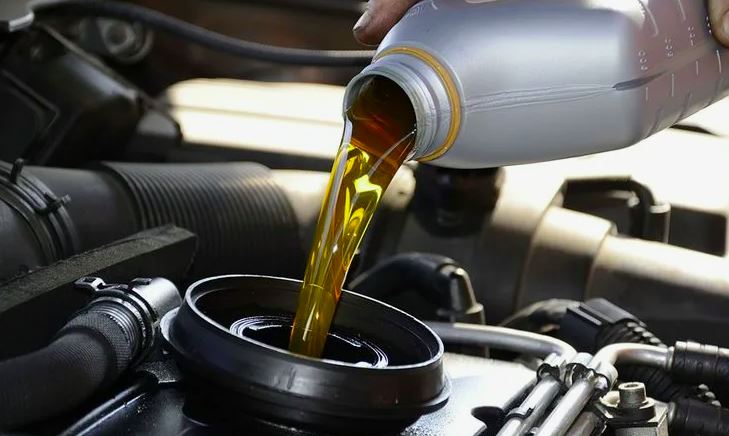Boosting Engine Performance: TBN Booster Additives
In the world of automotive maintenance, ensuring the longevity and optimal performance of an engine is paramount. One crucial aspect of this maintenance is the use of oil additives, particularly TBN booster additives. Total Base Number (TBN) booster additives play a significant role in maintaining the health and efficiency of engine oils. Here we will delves into the importance, function, and benefits of TBN booster additives, highlighting their role in enhancing engine performance and extending oil life.
What is TBN?
Why is TBN Important?
The presence of acids in engine oil can lead to corrosion, which deteriorates metal surfaces and components within the engine. Over time, this can cause significant damage and reduce the engine’s overall lifespan. Maintaining an adequate TBN level ensures that the oil can neutralize these acids, providing continuous protection for the engine.
The Role of TBN Booster Additives
What are TBN Booster Additives?
How Do TBN Booster Additives Work?
TBN booster additives work by increasing the Total Base Number of the engine oil. They contain alkaline substances that react with the acidic by-products of combustion, neutralizing them and preventing the formation of corrosive compounds. This process helps in maintaining the oil’s protective properties and extends the interval between oil changes.
Benefits of Using TBN Booster Additives
Extended Oil Life
One of the primary benefits of TBN booster additives is the extension of oil life. By maintaining the oil’s alkalinity, these additives allow the oil to remain effective for longer periods, reducing the frequency of oil changes and lowering maintenance costs.
Enhanced Engine Protection
TBN booster additives provide enhanced protection against corrosion and wear. By neutralizing acids, they prevent the formation of corrosive compounds that can damage engine components, thereby extending the engine’s lifespan and improving its performance.
Improved Performance in Harsh Conditions
Engines operating in harsh conditions, such as those in heavy-duty vehicles or equipment, benefit significantly from TBN booster additives. These additives ensure that the oil maintains its protective properties even under extreme conditions, providing reliable performance and protection.
Types of TBN Booster Additives
Detergent Additives
Detergent additives are commonly used TBN boosters. They help in keeping the engine clean by preventing the formation of deposits and neutralizing acids. Calcium and magnesium-based detergents are widely used for this purpose.
Overbased Additives
Overbased additives are another type of TBN booster that contains high levels of alkaline substances. They offer superior acid-neutralizing capabilities and are often used in high-performance and heavy-duty engine oils.
Application of TBN Booster Additives

Passenger Vehicles
In passenger vehicles, TBN booster additives help in maintaining oil quality and extending the interval between oil changes. This is particularly beneficial for vehicles that are used for long-distance travel or in areas with high traffic congestion.
Commercial and Heavy-Duty Vehicles
For commercial and heavy-duty vehicles, such as trucks and construction equipment, TBN booster additives provide essential protection under demanding conditions. These vehicles often operate in harsh environments and require enhanced oil protection to ensure reliable performance and longevity.
Industrial Equipment
Industrial equipment, including generators and machinery, also benefits from TBN booster additives. These additives ensure that the oil remains effective in neutralizing acids and preventing corrosion, which is crucial for the smooth operation and maintenance of industrial machinery.
Choosing the Right TBN Booster Additive
Compatibility with Engine Oil
When selecting a TBN booster additive, it is essential to ensure compatibility with the engine oil being used. Different oils have varying base formulations, and using an incompatible additive can affect the oil’s performance.
Manufacturer Recommendations
Always refer to the manufacturer’s recommendations when choosing a TBN booster additive. Manufacturers provide specific guidelines on the type and concentration of additives suitable for their engines, ensuring optimal performance and protection.
Quality and Brand Reputation
Opt for TBN booster additives from reputable brands known for their quality and effectiveness. High-quality additives provide consistent performance and ensure that the engine oil maintains its protective properties over time.
Potential Drawbacks and Considerations
Overuse of Additives
While TBN booster additives offer significant benefits, overuse can lead to issues such as increased oil viscosity and potential compatibility problems. It is crucial to follow recommended dosages and not exceed the manufacturer’s guidelines.
Environmental Impact
The production and disposal of chemical additives can have environmental implications. It is essential to use these additives responsibly and consider environmentally friendly options when available.
Future Trends in TBN Booster Additives
Advancements in Additive Technology
Advancements in additive technology are leading to the development of more efficient and environmentally friendly TBN boosters. New formulations aim to provide enhanced protection while minimizing the environmental impact.
Focus on Sustainability
The automotive industry is increasingly focusing on sustainability, and this trend is reflected in the development of TBN booster additives. Manufacturers are exploring sustainable sources and eco-friendly production methods to reduce the environmental footprint of these additives.
Practical Tips for Using TBN Booster Additives
Monitoring TBN Levels
Regularly monitoring the TBN levels of your engine oil is essential to determine when to add TBN booster additives. Oil analysis kits are available that allow you to measure TBN levels accurately. Keeping an eye on these levels ensures timely addition of the booster, maintaining optimal oil performance.
Mixing Additives
When adding TBN booster additives, it’s crucial to mix them thoroughly with the existing engine oil. This can be done by adding the additive during an oil change, ensuring that it is evenly distributed throughout the oil system. Follow the additive manufacturer’s instructions for the correct procedure.
Frequency of Use
The frequency of adding TBN booster additives depends on the type of engine and operating conditions. For passenger vehicles, adding the booster at every oil change may be sufficient. In contrast, heavy-duty and industrial engines might require more frequent additions due to harsher operating environments.
Final Thoughts
TBN booster additives play a vital role in maintaining the health and performance of engine oils. By enhancing the oil’s alkalinity, these additives provide essential protection against acid buildup, corrosion, and wear. Whether for passenger vehicles, heavy-duty trucks, or industrial equipment, TBN booster additives ensure that the engine oil remains effective, extending its life and improving overall engine performance.
When choosing a TBN booster additive, it is essential to consider compatibility, manufacturer recommendations, and the quality of the additive. By doing so, you can ensure that your engine receives the best possible protection, resulting in enhanced performance and longevity.
In the ever-evolving world of automotive maintenance, TBN booster additives stand out as a crucial component in ensuring the optimal performance and longevity of engines. As technology advances and sustainability becomes a key focus, the future of TBN booster additives looks promising, offering even greater benefits for engine protection and performance.
FAQs

Does Your Car Need High Mileage Oil? (Signs You Should Switch)
Does Your Car Need High Mileage Oil? (Signs You Should Switch) Discover More As vehicles age, their engines undergo significant wear, leading to reduced efficiency and potential breakdowns. One of the most effective ways to maintain an older engine is by switching to high-mileage oil, specially formulated for cars with 75,000 miles or more. But how do you know if your car needs it? What are the key benefits, drawbacks, and alternatives? And why should you consider Ruamnza Xrace Pro Oil for your high-mileage vehicle?

Does Your Diesel Engine Need a Special Oil? (The Truth Revealed)
Does Your Diesel Engine Need a Special Oil? (The Truth Revealed) Discover More When it comes to maintaining a diesel engine, one of the most critical decisions you’ll make is choosing the right oil. Diesel engines operate under extreme conditions—high compression, intense heat, and heavy loads—which means they require a lubricant that can withstand these challenges. But does your diesel engine really need a special oil, or can you use any high-quality motor oil? In this comprehensive guide, we’ll uncover the

What is Anti-Freeze Coolant? Types, Colors & How to Use
What is Anti-Freeze Coolant? Types, Colors & How to Use Discover More Anti-freeze coolant, also known as engine coolant or radiator fluid, is a specially formulated liquid that regulates engine temperature, prevents overheating in summer, and protects against freezing in winter. It is a mixture of water, ethylene glycol or propylene glycol, and chemical additives that enhance engine efficiency and longevity. Without proper coolant, engines can suffer from: Overheating (leading to warped cylinder heads or blown gaskets) Freezing (causing cracked engine blocks in cold climates) Corrosion (damaging radiators,

What is ATF? Types of Transmission Fluid & When to Change It
What is ATF? Types of Transmission Fluid & When to Change It Discover More Transmission fluid is one of the most critical yet often overlooked components in a vehicle’s maintenance routine. Whether you drive an automatic, manual, continuously variable transmission (CVT), or dual-clutch transmission (DCT) vehicle, the right transmission fluid ensures smooth operation, longevity, and peak performance. What is Automatic Transmission Fluid (ATF)? Automatic Transmission Fluid (ATF) is a specialized lubricant designed to reduce friction, cool transmission components, and facilitate smooth

Fuel Injector Cleaner: Does It Really Work? (Analysis, Benefits, and Top Picks)
Fuel Injector Cleaner: Does It Really Work? (In-Depth Analysis, Benefits, and Top Picks) Discover More Modern engines rely on precise fuel delivery to maintain performance, efficiency, and emissions compliance. Fuel injectors play a critical role in this process by atomizing fuel into a fine mist for optimal combustion. However, over time, carbon deposits, varnish, and contaminants can clog injectors, leading to poor engine performance. Fuel injector cleaners are chemical additives designed to dissolve these deposits and restore injector efficiency. But do they

Best Railroad Engine Oils in 2025 – Boost Performance & Longevity
Best Railroad Engine Oils in 2025 – Boost Performance & Longevity Discover More The railroad industry is a backbone of global logistics, transporting millions of tons of cargo and passengers daily. Given the immense stress on locomotive engines, selecting the best railroad engine oil is crucial for optimal performance, fuel efficiency, and engine longevity. In 2025, advancements in lubrication technology have led to high-performance synthetic blends, low-ash formulations, and smart additives that enhance engine protection under extreme conditions. This guide

Best Transmission Treatments to Extend Your Vehicle’s Lifespan (2025 Guide)
Best Transmission Treatments to Extend Your Vehicle’s Lifespan Discover More Maintaining your vehicle’s transmission is crucial for ensuring longevity, smooth performance, and fuel efficiency. With advancements in automotive technology, transmission treatments have evolved significantly in 2025. This guide explores the best transmission treatments available, their benefits, and how they can help extend your vehicle’s lifespan. Understanding Transmission Systems and Their Importance A vehicle’s transmission is responsible for transferring power from the engine to the wheels, enabling smooth gear shifts and
